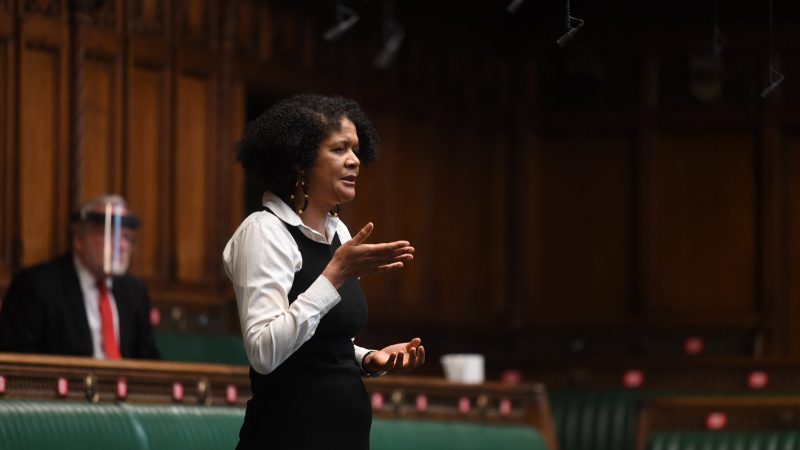
Labour has warned that a new taxpayer-funded research and invention agency risks becoming a front for “sleaze in science” if ministers insist on exempting it from Freedom of Information and public procurement rules.
The government announced the creation of the Advanced Research and Invention Agency (ARIA) earlier this year, saying it would fund “high-risk, high-reward” research giving experts the power to identify and enable transformational science.
Commenting on government plans for the new body, Chi Onwurah said: “The ongoing sleaze scandal engulfing government makes clear why transparency and accountability for government agencies is so important.”
Critics have raised concerns over transparency, as ARIA, which will have access to £800m in funding over the course of the parliament, will be audited by the National Audit Office but exempted from Freedom of Information obligations.
“We cannot allow cronyism to sully science, with privileged access and contracts for mates, creating a two-tier science community,” Labour’s shadow science, research and digital minister Chi Onwurah said.
“Everyone should benefit from the creation of the advanced research and invention agency, which could play a big role in scientific progress if it is open, accountable and driven by an agreed mission.”
The ARIA bill is currently progressing through the House of Commons and a public bill committee is looking at amendments to the proposed legislation this week. Labour has tabled several that it has said would ensure the body is:
- “Accountable to the public and media through freedom of information requests;
- “Subject to oversight and existing procurement rules;
- “Accountable to parliament through science select committee oversight;
- “Accountable to parliament by reporting on tolerance of failure; and
- “Accountable to parliament with regard to national security through a report to the intelligence and security committee when asked.”
Onwurah has argued that a “blanket exemption” from regulations “cannot be justified and has no precedent in the US”, and warned that “Tory secrecy plans mean the new agency risks being a front for sleaze, threatening UK science”.
The Information Commissioner’s Office, responsible for maintaining transparency by government agencies and regulating the handling of data in the UK, has said it does not believe the exemption for the new body is justified.
The UK research organisation is being modelled on the US Defense Advanced Research Projects Agency (DARPA). The opposition party has highlighted that DARPA is subject to Freedom of Information laws and public procurement rules.
“We have very rigorous review processes – technical, financial and others,” US agency director Peter Highnam told the committee. “There are robust processes and independent looks at those processes. Again, we could not operate any other way.”
Onwurah’s comments followed those of Keir Starmer in Prime Minister’s Questions in parliament on Wednesday afternoon, during which he argued that there has been a pattern of “sleaze, sleaze, sleaze” in government.
Referring to texts between Boris Johnson and James Dyson, in which Johnson said he “fixed” a tax issue for Dyson who was asked to make ventilators during the pandemic, Starmer accused the Prime Minister of “fixing tax breaks for his friends”.
Concerns over the proposed research body also come amid an ongoing lobbying row, sparked by former Tory Prime Minister David Cameron contacting government officials and ministers on behalf of financial firm Greensill Capital.
Announcing funding for ARIA in February this year, Business Secretary Kwasi Kwarteng said: “Today’s set of challenges – whether disease outbreaks or climate change – need bold, ambitious and innovative solutions.”
The minister added: “Led independently by our most exceptional scientists, this new agency will focus on identifying and funding the most cutting-edge research and technology at speed.
“By stripping back unnecessary red tape and putting power in the hands of our innovators, the agency will be given the freedom to drive forward the technologies of tomorrow, as we continue to build back better through innovation.”




More from LabourList
‘The hope that kills you’: Reflections from the final day in Gorton and Denton
MPs, union leaders and organisations react to ‘bruising’ Gorton and Denton result
A gory night for Labour